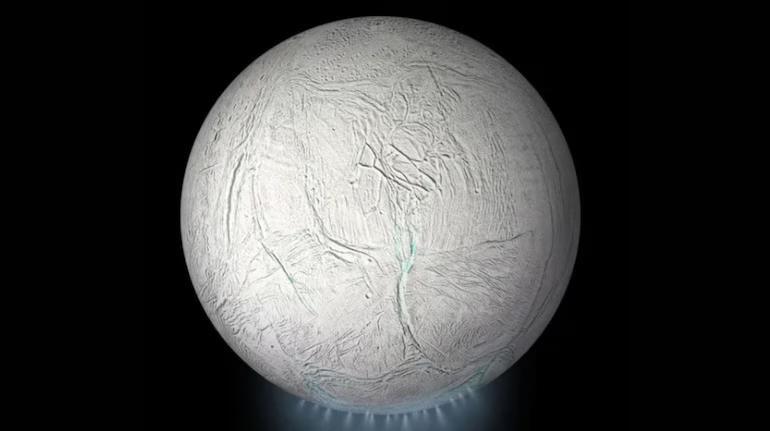
Icy Moons with Boiling Oceans Could Support Life: Study
The search for life beyond Earth has long been a topic of fascination and intrigue, with scientists and researchers continually exploring new and innovative ways to discover signs of life in our solar system and beyond. One area of particular interest in recent years has been the icy moons that orbit some of the gas giants in our solar system, such as Jupiter and Saturn. These moons, with their thick ice crusts and potential for subsurface oceans, have been identified as promising candidates in the search for extraterrestrial life.
However, a new study has revealed that some of these icy moons may have subsurface oceans that boil when their ice shells become thin, due to reduced pressure and temperature conditions near the water triple point. This phenomenon allows liquid water to turn into vapor, creating a boiling effect that could potentially be hostile to life. Despite this, researchers have suggested that life could still survive deeper beneath the ice, insulated from the extreme conditions that exist near the surface.
The water triple point is a critical parameter in this process, as it is the temperature and pressure at which liquid water, ice, and water vapor coexist in equilibrium. When the ice shell of an icy moon becomes thin, the pressure and temperature conditions near the triple point can cause the liquid water to turn into vapor, resulting in a boiling effect. This process can occur even when the temperature is below the freezing point of water, as the reduced pressure and temperature conditions near the triple point can still allow for the existence of liquid water.
However, as the researchers noted, this boiling effect may not be a barrier to life existing on these icy moons. Organisms could potentially survive deeper underwater, insulated from the extreme conditions that exist near the surface. The ice crust that covers the subsurface ocean could provide a protective layer, shielding life from the harsh conditions that exist above.
This discovery has significant implications for the search for life beyond Earth. If life can exist on icy moons with boiling oceans, it opens up a whole new range of possibilities for where life could be found in our solar system. The moons of Jupiter and Saturn, such as Europa and Enceladus, are already considered to be promising candidates in the search for life, due to their subsurface oceans and potential for hydrothermal activity. The fact that life could exist on these moons even with boiling oceans adds an extra layer of complexity and intrigue to the search for life.
The study also highlights the importance of considering the geological and astronomical context of potential habitats for life. The ice shells of these moons are not static, but rather dynamic systems that can change over time due to various geological and astronomical processes. The boiling effect that occurs when the ice shell becomes thin is just one example of the complex interactions that can occur between the ice, ocean, and surrounding environment.
In order to further explore the possibility of life on these icy moons, researchers will need to conduct more detailed studies of the geological and astronomical context of these systems. This could involve using advanced computer simulations to model the behavior of the ice shell and subsurface ocean, as well as conducting laboratory experiments to simulate the conditions that exist on these moons.
Ultimately, the discovery that icy moons with boiling oceans could support life is a significant one, and it highlights the complexity and diversity of potential habitats for life in our solar system. As we continue to explore and study these systems, we may uncover even more surprising and intriguing features that could support life.
In conclusion, the search for life beyond Earth is a complex and multifaceted field of study, and the discovery that icy moons with boiling oceans could support life is just one example of the many surprises that await us as we explore our solar system. As we continue to push the boundaries of our knowledge and understanding, we may uncover even more evidence of life beyond Earth, and the implications of such a discovery would be profound.




